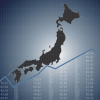Equity
Disequilibrium Economics
Major “events” in markets have been caused by wrong assumptions over mathematical relationships. The Long Term Capital Management Debacle (LTCMD) in 1998 was primarily the result of the incorrect assumption of perfect markets by a cluster of Nobel Laureates. The naïve and wrong assumptions over correlations proved to be the spectacular undoing of the mortgage markets in 2007-8.
Can the Rest of the World Live with the USA?
Currently, the US economy is stuttering. Headline growth during the latter half of 2023 was extremely rapid – GDP growth averaged more than twice the economy’s 20-year average - but this strong activity was led by the public sector, either directly through government investment or indirectly via the authorities’ support for household incomes.
Narratives and Liquidity: A Personal Journey
In my experience, there is nothing so powerful for asset markets as an “unquantifiable positive story and a tonne of liquidity”. Russell Napier’s Library of Mistakes in Edinburgh looks brilliantly at some of the madness that has taken hold of financial markets over the centuries (well worth a visit if you are ever nearby), and of course Edward Chancellor’s Devil take the Hindmost is the seminal text on the subject of credit-financed investment madness, but I have seen my fair share of mad booms firsthand.
Global equity outlook 2024
We are heading into a changing world, where the more recent past can no longer be relied on to guide our path forward. But we are not blindfolded. There are tools we can use to provide a greater degree of certainty. Our Future Quality approach is designed to help us identify franchises that are set to endure.
Japan equity outlook 2024
We expect 2024 to be a year of domestic consolidation and long-term reform measures, where markets are driven more by Japan-specific events than by global factors. After decades of deflation, we see Japan as finally breaking out of this cycle in 2024, as it enters a virtuous cycle of price increases and wage hikes.
ASEAN equity outlook 2024
We believe ASEAN will offer good pockets of growth and quality opportunities, as well as earnings resilience and protection amid some of the prevailing global macro headwinds.
Asian equity outlook 2024
Considering that major tech companies are profitable, cash rich and cannot afford to lose out in the highly competitive AI race, spending on high-end computing and neural networks looks set to continue in 2024. This will likely create a lasting boon to many component suppliers (the so-called picks and shovels of AI) across Asia.
China equity outlook 2024
For those willing to brave immediate challenges, we believe China will continue to offer long-term opportunities as the country has been working to become technologically self-sufficient and develop high-end technologies on its own in a more challenging regulatory environment.
Singapore equity outlook 2024
We believe that our “New Singapore” narrative focusing on sectors and companies that represent the future of the city-state will remain relevant in 2024. Energy transition has risen to prominence within the New Singapore narrative in addition to data, technology, healthcare, logistics, tourism and food solutions.
Repressed Inflation May Bubble to the Surface Next Year
Whether for year-end management reasons, or as a result of political considerations, it is a fact that the US Federal Reserve has allowed effective monetary conditions to ease over the last month. The public sector has injected more than $200 billion of liquidity into the financial system. It therefore comes as no surprise that financial markets are booming, yields are tumbling and the dollar is weak, a situation that we expect to continue into year end.
These Are Era-Defining Times
It has been a wild few weeks within debt markets – sharp sell-offs, even sharper rallies, and then a renewed sell off. Movements in equity markets have looked tame by comparison. Bond markets are certainly having to process a lot of conflicting information – inflation, deflation, politics and a mountain of potential issuance next year following what was an amazingly quiet year for debt issuance in 2023.
Oil Prices, Inflation, and Growth
Over the recent years, there has been a tendency amongst politicians and the media to target the CPI rather than inflation itself, or at least the inflation process. Too often have we heard from policymakers that inflation can be brought down through direct government subsidies or price controls. Subsidies may well have a justifiable social purpose, particularly during times of externalities such as wars but they have no role in controlling inflation. We have even heard that interest rates should not be increased “because they affect mortgage rates and mortgage costs are in the CPI”.
Asia: A Shortage of Dollars
The media is abuzz with stories about the demise of the US Dollar as a reserve currency and the rise of alternatives, such as the proposed new “BRICs” currency. From our perspective, we cannot think of a worse monetary idea than a pan-BRIC currency. It is difficult to conceive a less optimal currency area i.e. one worse than the Euro Area, which has certainly had (and continues to have) its problems.
Just Passing Through?
There was quite simply nothing not to like about the latest US consumer price index data; not only was the headline a good number but so too were most of the internals.
Do Interest Rates Matter that Much? Yes, and No…
One cannot turn on a financial news programme at present without hearing some talking-head or other discussing the outlook for interest rates, almost as though they are the only thing that matters to markets or the economy. We suspect that the matter to a degree to the latter, and much less to the former than is generally accepted.
As the developed world continues to struggle with inflation and a lack of growth, Asia stands out as the bright spot, with inflation well in check and monetary cycles peaking ahead of the West. Growth in Asia is also expected to outperform the West over the next few years, reversing a decade-long trend of developed world growth outperformance.
Financials, healthcare and energy buck the trend and rise in a down market.
On the Ground in Asia-Monthly Insights: Asian Fixed Income-March 2023
Against a backdrop of a more stable bond market, we prefer relatively higher-yielding Philippine, India and Indonesian government bonds. In addition, there appears to be early signs suggesting that inflationary pressures in these countries have likely peaked, which we see providing further support for these bonds. As for currencies, we expect the Thai baht and Indonesian rupiah to outperform regional peers.
The Credit Crunch; a Product of 2020 that Began Weeks Ago
Although recent headline-grabbing events within the banking system have moved the topic of a potential credit crunch centre-stage in the markets’ consciousness, the fact is that a credit crunch within the Global Financial System began a year ago, while that in the US domestic economy began late last year. More recently, Europe looks to have moved down the same path. Admittedly, the global situation did improve during December and early January, when global financial conditions eased for a variety of primarily technical reasons, but this has proved to have been only a false dawn.
Key Points: An Anaemic Recovery
Our Gravity Index for China has made only a very modest recovery so far this year.
Harvesting Growth, Harnessing Change - Monthly Insights: Asian Equity-March 2023
In a world starved of workers and growth, we believe that Asia’s ability to supply both puts the region on a very firm footing over the longer term. Once we get through this current US-led rate tightening cycle and the flush out of weaker financial institutions in the West, we see a bright future for Asia, which is now trading at extremely attractive valuations.
New Zealand Equity Monthly – February 2023
Bonds have been attracting more attention from investors recently in view of their higher yields and the possibility of capital gains. In addition, as equities have lost their shine for now amid higher interest rates, bonds are expected to continue to benefit from an asset allocation perspective.
New Zealand Fixed Income Monthly – February 2023
Bonds have been attracting more attention from investors recently in view of their higher yields and the possibility of capital gains. In addition, as equities have lost their shine for now amid higher interest rates, bonds are expected to continue to benefit from an asset allocation perspective.
On the Ground in Asia-Monthly Insights: Asian Fixed Income-February 2023
Countries in the region took divergent monetary paths during the month. India and the Philippines raised their respective policy rates, while Indonesia and South Korea maintained their interest rates.
Thoughts on the 2023 China National People’s Congress
The official GDP growth target of “around 5%” unveiled at China’s annual National People’s Congress was lower than many external forecasts, and fiscal policy looks less accommodative relative to both market expectations and that of 2022. In our view, these conservative targets leave room for outperformance and likely reflect cautiousness over unexpected events and reluctance in overstimulating the economy.
The MSCI AC Asia ex Japan Index slumped 6.8% in US dollar terms, giving up its January gains. China’s reopening and peak interest rates euphoria in January were short-lived as hotter-than-expected economic indicator releases in the US raised the spectre of higher-for-longer interest rates.
Global Equity Quarterly (Q4 2022)
Current equity market conditions dictate that you choose your investment attire particularly carefully. In our view, buying profitless technology companies is like going up a Scottish mountain wearing flip-flops. You might get away with it, but the odds are not in your favour. Instead, we prefer the protection afforded by profits (and cash) generated today—not at some unspecified point in the future.
On the Ground in Asia-Monthly Insights: Asian Fixed Income-January 2023
We maintain the view that global inflationary pressures may moderate further. We prefer Singapore, South Korea and Indonesia bonds. As for currencies, we favour the renminbi, the Singapore dollar and the Thai baht.
Harvesting Growth, Harnessing Change - Monthly Insights: Asian Equity-January 2023
Asian equities made a strong start to 2023, with the MSCI AC Asia ex Japan Index returning 8.2% in US dollar (USD) terms in January, supported by a rebound in investor sentiment towards China.
Harvesting Growth, Harnessing Change - Monthly Insights: Asian Equity-December 2022
Chinese shares outperformed in December as the country continued to move away from its zero-COVID policy while markets in Taiwan and South Korea slumped amid concerns towards the global economy. In ASEAN, Thailand led the region as the country is expected to be one of the biggest beneficiaries of a potential return of Chinese tourists.
On the Ground in Asia-Monthly Insights: Asian Fixed Income-December 2022
We expect global inflation to ease and global growth to weaken in 2023; we also think that the Fed is likely to pause hiking rates by the first quarter of 2023. Against this backdrop, we are broadly constructive on regional bonds as most Asian central banks could be nearing the end of their rate hike cycles.
On the Ground in Asia-Monthly Insights: Asian Fixed Income-November 2022
We are more positive on duration overall, on the assessment that we are likely past peak hawkishness from the Federal Reserve and other developed market central banks. We favour Singapore and South Korean government bonds, given their relatively higher sensitivity to stabilising US Treasury yields.
Harvesting Growth, Harnessing Change - Monthly Insights: Asian Equity-November 2022
Asian stocks rebounded strongly in November after Federal Reserve Fed Chair Jerome Powell pointed to slower pace of monetary policy tightening and lifted market sentiment. All Asian markets ended in positive territory, with China in the lead with a month-on-month (MoM) gain of 29.7%.
New Zealand Fixed Income Monthly – November 2022
Although New Zealand’s November 2022 rate hike was larger than expected, markets had been pricing in aggressive tightening for quite some time. This may soften the impact of the current challenges. Given that yields on some bonds are now approaching 6%, we feel that stronger income generation opportunities are also providing a silver lining in the fixed income market.
2023 Asian equity outlook
As we look towards 2023, it is easy to be overwhelmed by the broader permutations of possible outcomes. But things don’t appear so dire in Asia. Inflation, which is effectively a value transfer from net consumers to net producers, may continue to benefit India and pockets of ASEAN due to favourable demographics and rising productivity.
2023 Japan equity outlook
As geopolitical risks and globalisation are reassessed in the wake of the COVID-19 pandemic and war in Europe, we believe that Japan stands to benefit as more companies refocus on their home markets.
2023 Global equity outlook
Some of the factors that have shaped 2022 look less likely to recur in 2023 (for instance, supply chain duress because of COVID containment) but others will likely last longer (most notably a higher cost of capital). We are cautiously optimistic that less aggressive monetary policy will eventually make 2023 a kinder year for equity markets but there may yet be shocks to overcome.
2023 Singapore equity outlook
We expect a moderation of growth, a peak in inflation and a more accommodative monetary policy in 2023. We see this as a positive for Singapore, as we believe a more accommodative policy backdrop will help support continued expansion in corporate earnings growth in 2023.
2023 China equity outlook
We believe that the rewards will outweigh the risks related to China amid an existence of enough cyclical, thematic and structural trends that could enable the country to outperform in 2023; particular focus will be on the government’s zero-COVID policy and its support for the property sector.
Harvesting Growth, Harnessing Change - Monthly Insights: Asian Equity-October 2022
The ASEAN region fared better on the whole in October thanks to gains by the Philippines and Malaysia; Hong Kong and Taiwan stocks were volatile while the China market continued sliding.
Global Equity Quarterly (Q3 2022)
The low for this bear market could be a lot closer at hand now than it was, with equity valuations having fallen considerably. We remain focused upon assessing our companies’ ability to deliver earnings expectations and cash generation. These give us confidence in the long-term, even if shorter-term developments remain volatile.
New Zealand Equity Monthly – September 2022
The recent reporting season showed that New Zealand’s “gentailers” (companies that both generate and sell energy) remain committed to developing renewable generation capacity, with five such projects currently under construction. However, a rise in the cost of developing such capacity in the past 12 months is creating a significant challenge for gentailers.
Harvesting Growth, Harnessing Change - Monthly Insights: Asian Equity-September 2022
Rising interest rates and inflation woes continued to weigh on regional and global markets. US consumer prices registered above expectations with the August consumer price index (CPI) jumping 8.3% year-on-year (YoY). The tight labour market made further case for a rate hike, culminating in a 75-basis-point (bps) interest rate hike by the US Federal Reserve (Fed).
Harvesting Growth, Harnessing Change - Monthly Insights: Asian Equity-August 2022
The regional index of the MSCI AC Asia ex Japan in August was flat at 0.0% in US dollar terms, recovering after falling into negative territory earlier. The North Asian region was weighed down by foreign currency effects, trailing behind its ASEAN counterpart. India benefitted from its rate hike and lower oil prices.
New Zealand Equity Monthly – August 2022
In an encouraging sign for New Zealand equities, the benchmark NZX 50 Index ended August approximately 10% higher compared to the lows it saw in June, when it dropped below the 11,000 level for the first time in two years. However, the market still faces challenges given that at the end of August the index was also down about 10% compared to the start of 2022.
Global Equity Quarterly (Q2 2022)
Our belief is that we have moved into a new regime where inflation will be structurally higher despite the anchors of high debt burdens, ageing societies and ongoing technological disruption.
Harvesting Growth, Harnessing Change - Monthly Insights: Asian Equity-July 2022
Higher commodity prices impacted returns in Asia, while a slip in prices of crude oil and metals benefitted many Asian nations. We expect the future trajectory of inflation to dictate the path of interest rates, which in turn is seen determining economic growth globally.
New Zealand Equity Monthly – July 2022
This month we focus on two ESG-linked themes that generate a significant amount of investor interest: carbon neutrality and modern slavery.
New Zealand Equity Monthly – June 2022
As in the rest of the world, times are tough for New Zealand’s economy. Even so, given that stagflation occurs when higher inflation is combined with slower economic growth and rising unemployment, New Zealand is contending with the negative growth and inflationary aspects of stagflation without the accompanying unemployment issues.
Fears of a recession and the US CPI hitting a four-decade high of 8.6% year-on-year in May rippled through various economies. Asian markets took heed from the multiple headwinds in the US, with inflation being a common theme across the region. For the month, the MSCI AC Asia ex Japan Index fell by 4.5% in US dollar terms.
Japan’s “new form of capitalism” in review
We review the “new form of capitalism”, a government plan to boost economic growth initiated by Japanese Prime Minister Fumio Kishida, who is enjoying a high public approval rating ahead of a closely watched upper house election.
New Zealand Equity Monthly – May 2022
Recent results in the New Zealand retirement sector have been strong almost across the board, with operators of retirement villages posting high sales of both new stock and existing units. Independent valuations of retirement village assets have also increased significantly across all operators.
Asian equity markets rose marginally in May, boosted by Shanghai’s plan to lift COVID-19 restrictions, even as the US Federal Reserve raised its benchmark overnight interest rate by 50 basis points. For the month, the MSCI AC Asia ex Japan Index rose by 0.5% in US dollar terms.
Asian markets were downcast in April as investors were concerned about inflation and the likelihood of a larger-than-expected rate hike by the US Federal Reserve. For the month, the MSCI AC Asia ex Japan Index fell by 5.2% in US dollar (USD) terms.
New Zealand Equity Monthly – April 2022
Global Equity Quarterly (Q1 2022)
We are keen to participate in the push towards a less carbon intensive future but want to do so in a balanced fashion, with one eye on the associated risks.
Harvesting Growth, Harnessing Change - Monthly Insights: Asian Equity-March 2022
Asian stocks declined in March, dragged down by the Russia-Ukraine conflict. Lingering concerns over inflation also weighed on the equities markets. For the month, the MSCI AC Asia ex Japan Index fell by 2.8% in US dollar terms.
Asian stocks suffered losses in February as escalating Russia-Ukraine tensions culminated in an invasion of Ukraine by Russia. But despite the war in Eastern Europe, in our view Asian economies are more than strong enough to withstand commodity price hikes even at their current elevated levels.
Have you ever stopped to imagine what would happen if the world’s central banks spent just over a decade pouring USD 25 trillion of liquidity into the economy with more than 60% of that liquidity created in the last two years? In this article, we’ll try to assess what has happened and think about how investors should navigate the next phase of the greatest financial experiment of all time.
Harvesting Growth, Harnessing Change - Monthly Insights: Asian Equity-January 2022
Asian stocks had a tough start to 2022 amid concerns that persistent inflation could cause any tightening by the US Federal Reserve (Fed) to be more aggressive than expected. For the month, the MSCI AC Asia ex Japan Index fell by 3.10% in US dollar (USD) terms.
India: Reaping growth from change
Going back to India for a month after two long years of not being able to visit my family, I was pleasantly surprised by the new normal. While there has been much adversity, COVID-19 has also sparked positive change, especially on technology adoption.
Global Equity Quarterly (Q4 2021)
An ability to look forward to better times and remain optimistic is invaluable. These attributes are no less helpful when investing in equities. Whilst you can get an unpleasant surprise from misjudging the direction of the tide while enjoying your picnic, the consequences for misjudging the direction of the liquidity waves look more pronounced than ever as we enter 2022.
Harvesting Growth, Harnessing Change - Monthly Insights: Asian Equity-December 2021
Taiwan and South Korea were buoyed by strong exports as sustained global demand for electronics supported hardware tech stocks amid widespread supply chain disruptions. The ASEAN region saw mixed returns. Thailand was the best performer as policymakers approved new stimulus measures to support domestic consumption, while the Philippines had to delay COVID-19 vaccinations on the back of Typhoon Rai.
2022 Asian Equity Outlook: Well positioned to navigate tightening
We believe that Asian economies are well positioned to navigate monetary tightening in the US. Government finances are healthier, as are corporate balance sheets. Most Asian economies are digitising faster than their western peers, while consumption is set to receive a meaningful boost from economic reopening.
2022 Global Equity Outlook: Disruption sharpens the focus on Future Quality
The initial discovery of the Omicron variant was met with fairly sensational reporting by some of the world’s media and this fed through quickly into investor sentiment. It is probably true, however, that even if Omicron had not surfaced it was probably about time that investors were again reminded of the volatility that resides in markets, despite the mollifying impact of endless liquidity injections by central banks.
2022 Japan Equity Outlook: ESG to bring Japan to the fore
ESG initiatives are expected to become ever more important for companies and investors around the world in 2022. We expect many Japanese companies to come to the fore amid this global shift towards ESG, with enhancements in ESG disclosures shedding light on their value creation opportunities amid the current drive towards decarbonisation.
2022 Singapore Equity Outlook: Focusing on sustainable growth
The Singapore economy is on a road to recovery. Although the economy has already rebounded sharply in 2021, we expect the recovery theme to remain intact and continue supporting the Singapore economy in 2022. We see a broadening of growth within Singapore’s key economic engines in 2022, with a sharper recovery expected in the services sector as the economy reopens.
2022 China Equity Outlook: Focusing on new market leaders
Amid a flurry of headlines, investors may have largely overlooked the significant number of recent positive developments in China, such as initiatives directed towards ambitious renewables targets, the continued opening up of the financial sectors and support for a significant number of industries including AI and big data. We believe these areas could become the new leaders of China’s capital markets, representing investment themes for the next several decades.
Harvesting Growth, Harnessing Change - Monthly Insights: Asian Equity-November 2021
Asian stocks fell in November on concerns that the spread of the new Omicron COVID-19 variant could derail global reopening plans and delay economic recoveries.
Future Quality Insights - December 2021 - A trip to Lisbon
Just a few weeks ago I attended my first in-person conference since 2019. Over 40,000 people descended upon Lisbon for Web Summit, one of the world’s largest technology conferences. The event brings together CEO’s and founders of established firms together with start-ups and policymakers to discuss and pitch ideas over the course of a week.
Asian stocks rose in October, with investors remaining focused on rising inflationary pressures and the US Federal Reserve’s tapering plans. The markets’ key concern is China’s economic performance and its impact on the energy and commodity complexes.
Global Equity Quarterly Q3 2021
Our philosophy is centred on the search for “Future Quality” in a company. Future Quality companies are those that we believe will attain and sustain high returns on investment. ESG considerations are integral to Future Quality investing as good companies make for good investment
Asian Equity Monthly - September 2021
Asian stocks fell in September, with concerns about China’s growth outlook and the US Federal Reserve (Fed)’s taper plan being the key drivers of sentiment. For the month, the MSCI AC Asia ex Japan Index declined by 4.2% in US dollar (USD) terms.
Asian Equity Monthly - August 2021
Asian stocks gained in August. While concerns about the spread of the Delta variant weighed on markets at the beginning of the month, the US Federal Reserve (Fed)’s dovish commentary and a rebound in the battered Chinese technology (tech) sector lifted sentiment towards the month-end
Future Quality Insights - August 2021
The Tokyo summer Olympics have been a welcome distraction over the last few weeks and well done to Japan for hosting the games so successfully in the current environment. In particular it is inspiring to see the years of preparation and planning being showcased by the top competitors in their respective sports.
Asian Equity Monthly - July 2021
Asian stocks suffered losses in July, weighed down by the selloff in Chinese equities following Beijing’s regulatory crackdown on the private tutoring and technology-related sectors.
Global Equity Quarterly Q2 2021
Our philosophy is centred on the search for “Future Quality” in a company. Future Quality companies are those that we believe will attain and sustain high returns on investment. ESG considerations are integral to Future Quality investing as good companies make for good investment
Further improving Japan’s equity culture and wealth
Japan’s economy should boom after the Olympics burden passes. Its stock market will likely rebound sharply too, but one item that has limited Japan’s equity culture, and thus, its wealth, especially for wary pensioners, is overly conservative guidance by corporations for upcoming fiscal year earnings.
Asian Equity Monthly - June 2021
Asian stocks edged lower in June, partly weighed down by a recent spike in COVID-19 cases in the region. Lingering worries about rising inflation and fears of a faster-than-expected tapering of the US Federal Reserve’s quantitative easing programme also dampened sentiment.
Asian Equity Monthly - May 2021
Supported by optimism about the region’s ongoing economic recovery, Asian stocks delivered decent gains in May, shrugging off concerns about a spike in COVID-19 cases in several Asian countries and persistent worries about inflation.
Japan Equity Monthly - May 2021
We explain why corporate earnings in FY21 are expected to begin reflecting recovering confidence among Japanese companies as vaccine rollouts gain momentum. We also look into the BOJ’s trial run for a digital yen and the impact such a currency could have on the economy and markets.
Asian Equity Monthly – April 2021
Asian stocks turned in decent gains in April on optimism about the region’s economic recovery, especially after China and several other Asian countries reported better-than-expected 1Q21 GDP growth. The MSCI AC Asia ex Japan Index gained 2.5% in US dollar (USD) terms over the month.
Net zero carbon: Is it all just hot air?
"Nowadays people know the price of everything and the value of nothing", quipped Oscar Wilde.
Japan Equity Monthly - April 2021
We gauge Japan’s slow vaccine rollout from an economic perspective and assess the shift in work styles that occurred during the pandemic and its potential impact on real estate prices.
The case for Asian small caps
Exhibiting an extensive track record of outperformance versus big caps and offering good diversification from traditional equities, we believe that Asian small-cap stocks provide numerous investment merits for long-term investors.
Global Equity Quarterly Q1 2021
Our philosophy is centred on the search for “Future Quality” in a company. Future Quality companies are those that we believe will attain and sustain high returns on investment. ESG considerations are integral to Future Quality investing as good companies make for good investment.
Asian equity monthly – March 2021
Asian stocks succumbed to profit-taking in March as hopes over a vaccine-led regional economic recovery were overshadowed by persistent reflationary concerns and rising global bond yields. The MSCI AC Asia ex Japan Index fell by 2.5% in US dollar (USD) terms over the month.
Palm oil investing through an ESG lens
Does investing in palm oil companies pose a controversy or present an opportunity? Here is a deep-dive analysis of the palm oil sector and the material ESG issues facing it. All in all, we believe that positive ESG changes represent a strong opportunity for palm oil companies, and we look for candidates that strive towards sustainability goals and exceed their ESG targets.
Japan Equity Monthly - March 2021
We provide our view on the Bank of Japan’s latest policy review, under which the central bank decided to allow long-term rates to fluctuate in a wider band and removed its annual target for ETF purchases. We also assess the barring of foreign spectators from the Olympic games.
Asian equity monthly – February 2021
Asian stocks gained in February as investors upheld optimism about a vaccine-led regional economic recovery. The MSCI AC Asia ex Japan Index rose 1.2% in US dollar (USD) terms over the month.
Australian equity monthly - February 2021
The S&P/ASX 200 Accumulation Index returned 1.5% during the month. Australian equities underperformed key offshore markets as a strong reporting season was offset by a surge in 10-year bond yields late in the month on the back of inflationary expectations. The global roll-out of COVID-19 vaccines and US fiscal stimulus saw the reflation trade take hold.
Japan Equity Monthly - February 2021
We assess the factors that enabled the Nikkei to rise above the 30,000 threshold for the first time since 1990; we also view the recent Robinhood frenzy from a Japanese market perspective.
Future Quality Insights - March 2021
The introduction of the EU’s Sustainable Finance Disclosure Regulation in March 2021 will see significant changes to the way asset management is conducted. It includes new disclosure requirements for investment firms to address environmental, social and governance (ESG) concerns and we welcome it with open arms.
Asian equity monthly – January 2021
Asian stocks brushed aside uncertainties posed by new COVID-19 variants and climbed higher in January. The MSCI AC Asia ex Japan Index rose 4.1% in US dollar (USD) terms over the month.
Ample upside room for slow recovering J-REITs
In 2020 the COVID-19 pandemic negatively affected a wide variety of Japanese assets, including the real estate investment trust (J-REIT) market. J-REITs have bounced back since, but their recovery has been sluggish compared to the Japanese equity market’s rebound. Despite the slower recovery, we believe J-REITs have ample upside room once the rise gathers pace.
Japan Equity Monthly - January 2021
We discuss Japan’s robust manufacturing sector and why it is not about reclaiming the past; we also take a look at the BOJ’s ETF purchases amid the current rally by equities.
Australian equity monthly - January 2021
The S&P/ASX 200 Accumulation Index returned 0.3% during the month. Australian equities outperformed most key offshore markets during the month as equity markets saw a pull-back late in the month. COVID-19 cases passed the 100 million mark globally and many countries continued to struggle with COVID-19 variant strains and vaccine supply issues.
Global Equity Quarterly Q4 2020
Our philosophy is centred on the search for “Future Quality” in a company. Future Quality companies are those that we believe will attain and sustain high returns on investment.
2021 New Zealand Equities Outlook
Worldwide, 2020 was unequivocally dreadful; a year of loss, pain, anxiety and separation that found no worthy adversary in technology or social privilege.
Australian equity monthly - December 2020
The S&P/ASX 200 Accumulation Index returned 1.2% during the month. Australian equities lagged key offshore markets during the month. Despite COVID-19 cases rising exponentially in the US and Europe, the start of the vaccine roll-out and further certainty regarding the US election result saw equities move higher.























































































